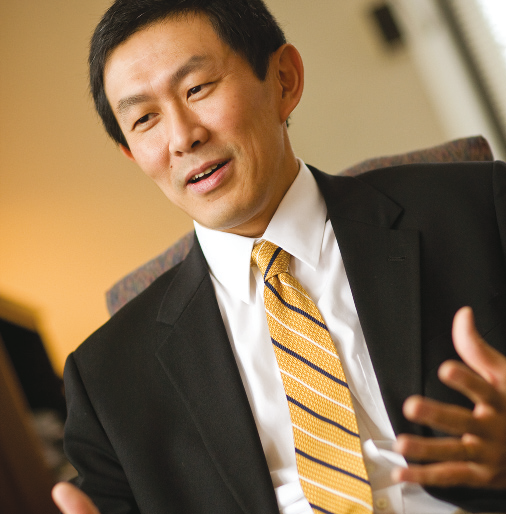The unprecedented surge in global energy consumption and increased awareness of climate change have pushed energy and the environment to the forefront of public debate. Over the next quarter century, it is estimated that some $20 trillion in capital investment will be required to meet worldwide energy demand. For engineers, satisfying that demand while protecting the environment is a grand challenge that will shape research and educational priorities for decades to come.
Recently, Lehigh held a two-day workshop that sought to define a balance between the competing demands of energy and the environment. The event drew national experts from Lehigh’s faculty and from among our many academic, industrial and government partners who work in energy-related fields. One outcome of the workshop was a more rigorous articulation than ever before of Lehigh’s energy research agenda.
The agenda includes the development of efficient, clean and sustainable energy sources that support global economic development. It also addresses issues related to energy supply, delivery, consumption and environmental impact, as well as social, political and economic ramifications. The energy research agenda draws upon the strengths of all three clusters of research expertise in Lehigh engineering:
Bio: Bio, Environmental and Molecular Engineering
Nano: Nanotechnology and Applications
Systems: Complex Engineering and Information Systems
More specifically, we harness our research strengths in areas such as catalysis, high-performance computing, advanced materials, combustion and chemical kinetics, control systems, and fluid mechanics to solve problems related to energy generation, delivery and usage.
Lehigh’s research strength in energy generation is renowned. It includes a wide variety of activities ranging from fusion modeling and simulation to clean coal technology, carbon capture and sequestration, to efficiency improvements and pollution reduction technologies. These are complemented by equally active research in alternative energy sources, with major projects in hydrogen, photovoltaics, and fuel cell and storage technologies.
Another side to the energy equation at Lehigh involves energy consumption. In this area, our researchers are engaged in a variety of projects, from the systematic assessment and auditing of industrial energy consumption to the design of high-efficiency motors to a revolutionary approach to LED (light-emitting diode) lighting.
At the core of our energy agenda is a belief in working across disciplines to develop foundational science and technology with broad potential benefit to society. The university’s Science, Technology, Environment, Policy & Society Initiative (STEPS) will create a collaborative, multidisciplinary environment that will enable our faculty and students to play a key role in finding innovative solutions to global challenges in the areas of energy and the environment. A key component of the $85 million initiative is a new facility designed to bring together the sciences, engineering and social sciences for collaborative research and education.
We are now in the process of establishing the Energy Systems Engineering Institute (see p. 16), an innovative industry-university partnership that will serve as a center of excellence in education and research for the energy industry. In collaboration with the Electric Power Research Institute (EPRI), the centerpiece of the ESEI is a new Master of Engineering program in energy systems that aims to produce the next generation of energy industry technical leaders.
I hope you enjoy this energy-focused issue of Resolve magazine. Please drop me a note to share your thoughts and comments.
S. David Wu, Dean and Iacocca Professor
P.C. Rossin College of Engineering and Applied Science

